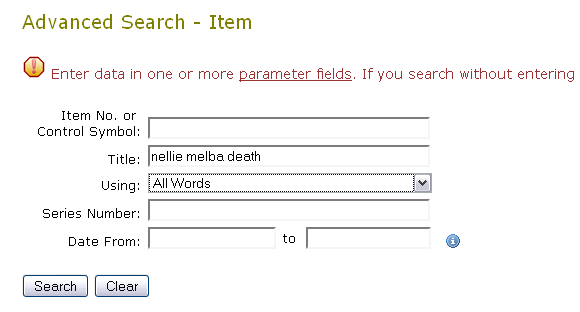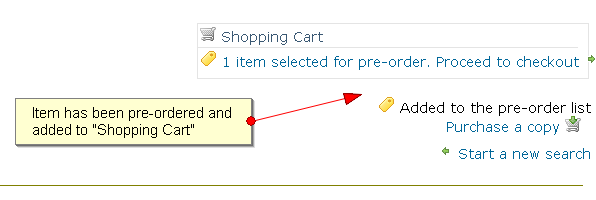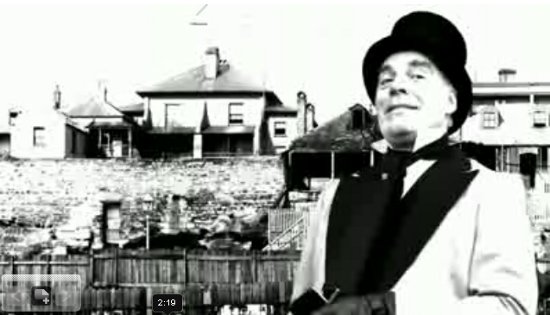Next Monday sees the introduction of a new series of posts “Moments in Time…” and a new blogger….Rhonda Campbell our photographic expert!
A Day in the Life of a State Archive (part 4)
The viewing! It’s 9am and our savvy web surfer is here. In fact, he arrived a bit earlier than the opening time and has been patiently waiting in the reader’s lounge with a cup of tea.
A Day in the Life of a State Archive (part 3)
OK, it’s retrieval time; OMG, how exciting! The clerk on retrieval duty is on her way to collect me. Boy, does she have a long way to walk. The retrieval staff at State Records NSW walk, on average, 10-12km a day. According to her GCC pedometer she has already walked 15,564 steps.
A Day in the Life of a State Archive (part 2)
– from request to delivery
[or: The Amazing Adventures of Dame Nellie Melba’s Probate Packet]
Well, it’s ‘tomorrow’ and the pre-order is under way. Our savvy web surfer submitted the pre-order form yesterday and the archivist on ‘pre-order duty’ has received my details.
A Day in the Life of a State Archive (part 1)
– from request to delivery
[or: The Amazing Adventures of Dame Nellie Melba’s Probate Packet]
Someone just found me on the internet! I’m listed in a database called Archives Investigator – the online archival catalogue at State Records NSW. Not all of the 7+ million items stored here have been listed in the system so I feel quite important.
What am I?
I should introduce myself before we move on. I’m a record, or more importantly, an archive. A probate packet to be precise. I am [ahem] almost 80 years old; ‘born’ when the subject of my contents died.
Life before arriving at State Records NSW is a bit hazy…I believe I spent most of the time bundled together with other probate packets deep in the bowels of the Supreme Court of NSW. And here at SRNSW? Well…I spend most of my time in a box bundled together with other probate packets. I don’t mind, we all know each other. Not much happens to us. Until now…
How was I found?
As I said, I’m on Facebook Archives Investigator and someone searched for me. There are many types of searches that be done in Archives Investigator – I was found through an Advanced -> Record Item Search.

and the result was this:
What happens now that I have been found?
I’m an ‘item’ in the system and the savvy web surfer who found me wants to know more about me. In fact, he decided he needs to see me. The quick and easy option would be to purchase a copy through the online shopping system but in the end he decided for the ‘try before you buy’ option.
This means I’m being pre-ordered.
What the heck is a preorder?
SRNSW helps you get the most research out of your day by offering a service in which you can pre-order records in advance of your visit. While this service has been in place for a few years, it is a new facility in Archives Investigator. SRNSW is continually working on ‘streamlining’ the pre-order process; the main problem being that not all records are listed in the one system. Other ways to preorder are by using the generic pre-order web form, by telephone (02) 9673 1788 and by email preorder@records.nsw.gov.au.
The new option in Archives Investigator is a simple four step process:
- if the record can be ‘booked’ the pre-order option will be available
- follow the prompts to the ‘checkout’
- fill in your details
- select a date for your visit (at least two working days ahead) and submit.
 The pre-order request has been submitted and received. Let’s see what happens tomorow…
The pre-order request has been submitted and received. Let’s see what happens tomorow…
Questions (includes links with your answers, please)
- What is the most useful online archival catalogue you have found?
- Have you used a pre-order system before?
[If you’re interested, more information about (Dame) Nellie Melba is on the Australian Dictionary of Biography Online.]
The criminal underworld of Sydney in the 1840s [video]

Scandals, Crime and Corruption: History Week 2009 will be a wild journey through the dark shadows of our past. Discover the scandals, crime and corruption that have shocked us over time and shaped our history, sometimes in unexpected ways.
In keeping with this criminal theme we have put together this entertaining video Registry of Flash Men. It is a unique insight into the criminal underworld in Sydney during the 1840s.
The video features extracts from the journal Registry of Flash Men narrated by its writer ‘William Augustus Miles’ (aka Fabian LoSchiavo)
The journal was an official surveillance record by William Augustus Miles who was Superintendent, then Commissioner, of Sydney Police in New South Wales from July 1840 to July 1848. Miles held the belief that much crime was caused by the contamination of innocent people, and that most of the crime in Sydney was the result of former convicts mixing with free immigrants. He believed that the criminal class required constant surveillance by the police.
- View the complete manuscript and transcription (State Records website)
Watch this space for…A Day in the Life of a State Archive
It is a light-hearted look at some of the procedures and policies we have in place to make State archives accessible in the reading room at Western Sydney.
What is metadata?
Metadata works much the same way as a card index catalogue – it provides information about a particular object. This information can be quite basic or incredibly detailed, layered and complex depending on your needs.
August 2009: Link roundup post
This is a roundup of some interesting links that we’ve stumbled across over the last month or so. If you’re interested in Archives 2.0, Conservation, Archival Processing and Research tools click here.

